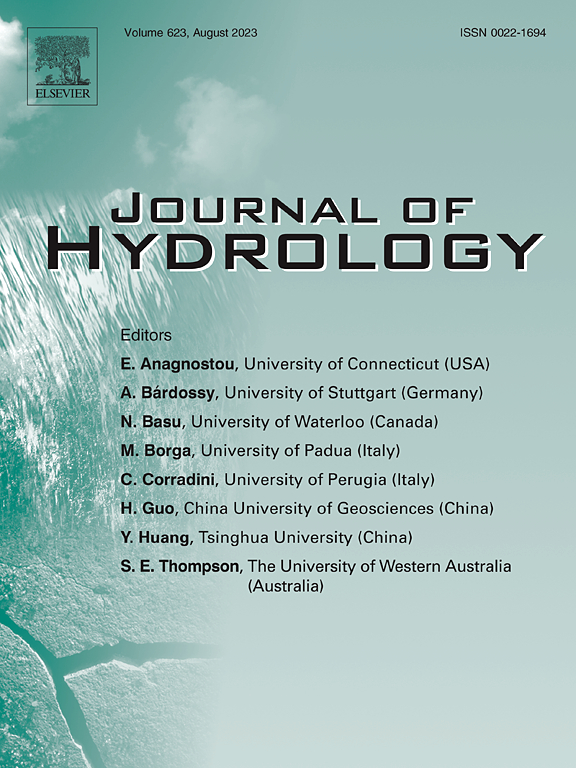水库水质评价的机器学习、遥感和统计方法综述
IF 6.3
1区 地球科学
Q1 ENGINEERING, CIVIL
引用次数: 0
摘要
水库具有许多基本功能,包括供水、防洪、水力发电以及农业和工业支持。为了达到特定的标准,需要对水库水质进行保护。由于人类活动,包括工业排放和农业径流,水库水质恶化。上游地区的森林砍伐和水土流失加剧了这一问题,破坏了生态。除了改变水流模式、温度变化和营养物富集外,还需要采取综合管理措施来维持水库水质。许多方法已经被采用,包括遥感(RS)用于环境变化的空间监测,机器学习(ML)用于估计/预测水质,以及可以识别水质变量和模式之间关系的多元统计分析(MSA)。通过研究这些方法的优势,可以最大限度地提高油藏管理的有效性。例如,通过了解每种方法,就有可能确定技术的最佳组合以获得最佳结果。此外,它还解决了与评估水质和生态系统健康有关的广泛挑战。使用这些方法中的一种或多种将取决于目标、数据特征和可用资源。此外,它还可以用于识别和减轻与油藏管理相关的风险。本综述选取2000 - 2023年间发表的文献,通过SCOPUS数据库的文献检索,具有合理的地域分布。本文章由计算机程序翻译,如有差异,请以英文原文为准。

A review of machine learning, remote sensing, and statistical methods for reservoir water quality assessment
Water reservoirs perform a number of essential functions, including water supply, flood control, hydropower generation, and agricultural and industrial support. In order to meet specific standards, the reservoir water quality needs to be protected. Because of human activities, including industrial discharges and agricultural runoff, reservoir’s water quality deteriorates. Deforestation and erosion in the upstream region exacerbate the problem, disrupting the ecology. A comprehensive management practice is necessary to maintain reservoir water quality in addition to changes in flow patterns, temperature changes, and nutrient enrichment. A number of methods have been employed, including Remote Sensing (RS) for spatial monitoring of environmental change, Machine Learning (ML) for estimation/predicting water quality, and Multivariate Statistical Analysis (MSA) that can identify relationships among water quality variables and patterns. By examining the strengths of these methods, it is possible to maximize the effectiveness of reservoir management. For instance, by understanding each method, it is possible to identify the optimal combination of techniques to achieve the best results. Furthermore, it addresses a wide range of challenges related to assessing water quality and ecosystem health. The use of one or more of these approaches will depend on the objectives, data characteristics, and resources available. Additionally, it can be used to identify and mitigate the risks associated with reservoir management. The articles in this review paper were limited to those published between 2000 and 2023, with a reasonable geographical distribution based on our literature search in the SCOPUS database.
求助全文
通过发布文献求助,成功后即可免费获取论文全文。
去求助
来源期刊

Journal of Hydrology
地学-地球科学综合
CiteScore
11.00
自引率
12.50%
发文量
1309
审稿时长
7.5 months
期刊介绍:
The Journal of Hydrology publishes original research papers and comprehensive reviews in all the subfields of the hydrological sciences including water based management and policy issues that impact on economics and society. These comprise, but are not limited to the physical, chemical, biogeochemical, stochastic and systems aspects of surface and groundwater hydrology, hydrometeorology and hydrogeology. Relevant topics incorporating the insights and methodologies of disciplines such as climatology, water resource systems, hydraulics, agrohydrology, geomorphology, soil science, instrumentation and remote sensing, civil and environmental engineering are included. Social science perspectives on hydrological problems such as resource and ecological economics, environmental sociology, psychology and behavioural science, management and policy analysis are also invited. Multi-and interdisciplinary analyses of hydrological problems are within scope. The science published in the Journal of Hydrology is relevant to catchment scales rather than exclusively to a local scale or site.
 求助内容:
求助内容: 应助结果提醒方式:
应助结果提醒方式:


